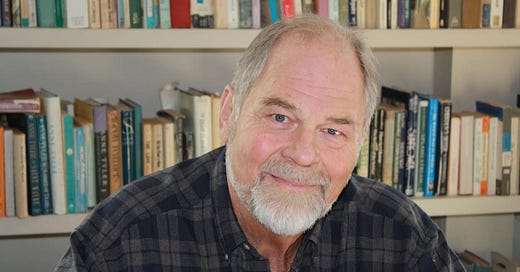Welcome readers!
We’re happy to introduce Sydney Lea, our selection for August’s Poetry at Ephemera. Thanks to Sydney and everyone who submitted! If you’d like to participate, we will be fielding submissions each month to publish one poem per issue from the same poet for the month. Each poet receives a $200 honorarium. For full rules and more info pleas…
Keep reading with a 7-day free trial
Subscribe to Ephemera to keep reading this post and get 7 days of free access to the full post archives.


